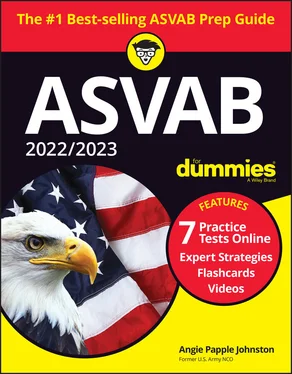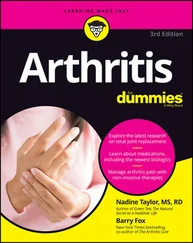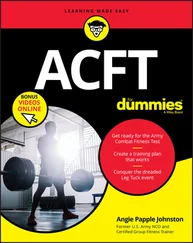If all else fails, break your word
If you’re stumped on a Word Knowledge question, you can resort to breaking apart the word (read about that in “ Deconstructing words” earlier in this chapter). Even taking off a prefix or suffix can point you in the right direction, especially if you’ve studied Tables 4-2and 4-3and the extensive lists in Appendix C.
Predict the meanings of these words to test your skills:
Desensitize
Decode
Deplume
These words all have something in common, and it’s the prefix de- . Knowing that de- usually means “away from,” you can guess what each word will mean.
Predict the meanings of these words:
Approachable
Serviceable
Governable
The common theme with these words is the suffix -able, which typically signifies “capable of.” You can use that to your advantage when you’re taking the ASVAB, too.
Guess what! It’s okay on the ASVAB
In some cases, it’s okay to guess on the ASVAB — but only if you do it strategically.
You won’t be penalized for guessing on the paper-and-pencil version of the ASVAB (aside from choosing the wrong answers, that is). You can complete each section at your own pace within the time limits, and you’re allowed to review and change your answers in the current section. After time expires and the test proctor tells you to close your booklet, you won’t be permitted to go back to that portion of the test.
You will be penalized for guessing on the CAT-ASVAB (the computerized version of the test) that new recruits take at MEPS. If you look at the clock and start clicking random answers in a rush because you’re almost out of time for that section, your score will go down. You can take the entire CAT-ASVAB at your own pace, but you can’t review or change any answers after you’ve submitted them. You can’t go back to the beginning of the subtest after you start. If you’re running out of time, do not guess! Keep trying to answer each question to the best of your ability, using the test-taking strategies outlined in this chapter.
 You’ll have 9 minutes to answer 15 questions if you’re taking the CAT-ASVAB and your subtest has no tryout questions, which leaves you about 36 seconds for each one. If you’re taking the paper-and-pencil version, you’ll have 11 minutes to answer 35 questions. That’s about 18 seconds per question (if you want to check the math, refer to Chapter 6).
You’ll have 9 minutes to answer 15 questions if you’re taking the CAT-ASVAB and your subtest has no tryout questions, which leaves you about 36 seconds for each one. If you’re taking the paper-and-pencil version, you’ll have 11 minutes to answer 35 questions. That’s about 18 seconds per question (if you want to check the math, refer to Chapter 6).
 If you must guess on the ASVAB, eliminate choices that you know are incorrect first. You have a 25 percent chance of getting each question right without reading it, but you can increase those chances if you eliminate even one incorrect choice. That’s why these test-taking strategies are so important — the better you perform on the Word Knowledge section, the higher your score will be, which opens doors to more desirable jobs and helps you get your military career off to a good start.
If you must guess on the ASVAB, eliminate choices that you know are incorrect first. You have a 25 percent chance of getting each question right without reading it, but you can increase those chances if you eliminate even one incorrect choice. That’s why these test-taking strategies are so important — the better you perform on the Word Knowledge section, the higher your score will be, which opens doors to more desirable jobs and helps you get your military career off to a good start.
You Are What You Speak: Improving Your Vocabulary, Improving Yourself
Having an extensive vocabulary can help you do well on the Word Knowledge subtest. But even if you don’t have a huge vocabulary, the strategies in this section can help you make up for that.
 You can acquire vocabulary words in the short term as well as over a long period of time. Combining both approaches is best, but if you’re pressed for time, focus on short-term memorization and test-taking skills.
You can acquire vocabulary words in the short term as well as over a long period of time. Combining both approaches is best, but if you’re pressed for time, focus on short-term memorization and test-taking skills.
Reading your way to a larger vocabulary
In a world of constant social media updates and 17 billion streaming platforms, the pastime of reading for enjoyment is quickly fading. To build your vocabulary, you have to read — it’s that simple. Studies consistently show that those who read for enjoyment have a much larger vocabulary than those who dislike reading. You have to see the words in print, not just hear someone say them. Besides, people can read and understand many more words than they could ever use in conversation.
That doesn’t mean you have to start with Advanced Astrophysics. In fact, if you don’t read much, you can start with your daily newspaper, a news magazine, or any type of reading material that’s just a notch or two above what you ordinarily read. Choose topics that interest you. If you’re interested in the subject matter, you’ll enjoy reading more. Plus, you may learn something new!
 When you encounter a word you don’t know, try to understand what it means by looking at the context in which the word is used. For example, if you read, “The scientist extrapolated from the data,” and you don’t know what extrapolated means, you can try substituting words you do know to see whether they’d make sense. For example, the scientist probably didn’t hide from the data. They probably used the data to make some sort of decision, judgment, or guess. To confirm your understanding of the word, check your dictionary. Making predictions like this can help you remember a definition for the long term.
When you encounter a word you don’t know, try to understand what it means by looking at the context in which the word is used. For example, if you read, “The scientist extrapolated from the data,” and you don’t know what extrapolated means, you can try substituting words you do know to see whether they’d make sense. For example, the scientist probably didn’t hide from the data. They probably used the data to make some sort of decision, judgment, or guess. To confirm your understanding of the word, check your dictionary. Making predictions like this can help you remember a definition for the long term.
You may even consider keeping a running list of terms you come across as you read, along with their definitions (see the following section). On the Word Knowledge subtest of the ASVAB, you often won’t be able to guess what a word means from its context (in many cases, there’s no context in the test because the words aren’t used in sentences). You also won’t be able to look the word up in the dictionary. But considering context and consulting a dictionary are two great ways to discover vocabulary words during your test preparation.
Keeping a list and checking it twice
Not long ago, an 11-year-old girl went through the entire dictionary and made a list of all the words she didn’t know. (The process took several months.) She then studied the list faithfully for a year and went on to win first place in the National Spelling Bee finals. You don’t have to go to this extent, but even putting in a tenth of her effort can dramatically improve your scores on the Word Knowledge subtest.
 One way to improve your vocabulary is to keep a word list. Here’s how that list works:
One way to improve your vocabulary is to keep a word list. Here’s how that list works:
1 When you hear or read a word that you don’t understand, jot it down or make note of it in your smartphone.
2 When you have a chance, look up the word in the dictionary and then write the meaning on your list.
3 Use the word in a sentence that you make up.Write the sentence down, too.
4 Use your new word in everyday conversation.Finding a way to work the word zenith into a description of last night’s basketball game requires creativity, but you won’t forget what the word means.
 Arrange your list by related items so the words are easier to remember. For example, list the words having to do with your work on one page, words related to mechanical knowledge on another page, and so on.
Arrange your list by related items so the words are easier to remember. For example, list the words having to do with your work on one page, words related to mechanical knowledge on another page, and so on.
Читать дальше

 You’ll have 9 minutes to answer 15 questions if you’re taking the CAT-ASVAB and your subtest has no tryout questions, which leaves you about 36 seconds for each one. If you’re taking the paper-and-pencil version, you’ll have 11 minutes to answer 35 questions. That’s about 18 seconds per question (if you want to check the math, refer to Chapter 6).
You’ll have 9 minutes to answer 15 questions if you’re taking the CAT-ASVAB and your subtest has no tryout questions, which leaves you about 36 seconds for each one. If you’re taking the paper-and-pencil version, you’ll have 11 minutes to answer 35 questions. That’s about 18 seconds per question (if you want to check the math, refer to Chapter 6). If you must guess on the ASVAB, eliminate choices that you know are incorrect first. You have a 25 percent chance of getting each question right without reading it, but you can increase those chances if you eliminate even one incorrect choice. That’s why these test-taking strategies are so important — the better you perform on the Word Knowledge section, the higher your score will be, which opens doors to more desirable jobs and helps you get your military career off to a good start.
If you must guess on the ASVAB, eliminate choices that you know are incorrect first. You have a 25 percent chance of getting each question right without reading it, but you can increase those chances if you eliminate even one incorrect choice. That’s why these test-taking strategies are so important — the better you perform on the Word Knowledge section, the higher your score will be, which opens doors to more desirable jobs and helps you get your military career off to a good start.










